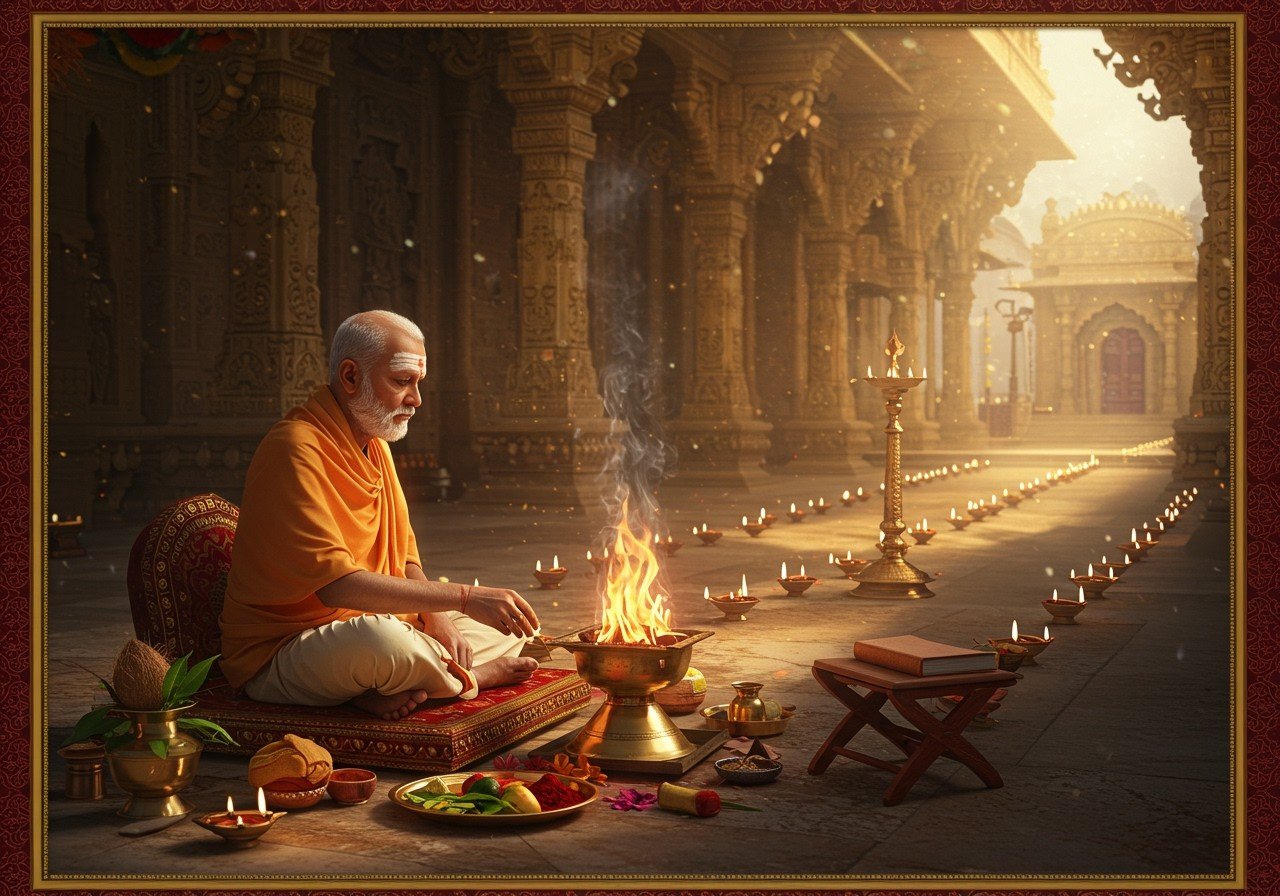
In Hindu culture, the Pandit holds a position of deep reverence. The term “Pandit,” derived from the Sanskrit word “Pandita,” denotes a learned scholar or teacher. These individuals are vital for preserving and transmitting our rich religious and cultural heritage. They serve various crucial roles within Hindu communities, both in India and across the globe.
What is a Pandit?
In essence, a Pandit is a Hindu priest or scholar. They perform sacred ceremonies and provide spiritual guidance to individuals and families. While sometimes used interchangeably with ‘Purohit,’ regional variations exist in the specific duties and connotations of these terms. The path to becoming a Pandit involves rigorous traditional education, encompassing the study of Sanskrit, Vedic scriptures, and the mastery of intricate ritual practices.
Roles and Responsibilities of a Pandit
Pandits are the pillars of tradition and wisdom in Hindu society. Their core responsibility lies in conducting religious ceremonies, including pujas, weddings (vivaham), and funerals (antyesti). These rituals serve as a bridge, connecting individuals to divine blessings and their cultural roots. Pandits also play a vital role as educators, imparting knowledge of sacred texts and philosophies, such as the Ramayana and Bhagavad Gita, to younger generations, ensuring the continuity of our spiritual heritage.
- Spiritual Guidance: Pandits act as advisors, offering counsel on personal and community matters. Their wisdom helps individuals navigate life’s complexities and maintain harmony within families. Learn more about the significance of Hindu rituals.
- Temple Services: In temples, Pandits are essential for upholding the sanctity of the space and ensuring rituals are performed with precision and reverence. Their presence maintains the spiritual heart of the temple, facilitating the connection between devotees and the divine.
- Community Engagement: Pandits often participate in community welfare activities, contributing to social initiatives aimed at uplifting society. Their involvement demonstrates a commitment to the well-being of the community beyond just the spiritual realm.
Significance of Pandits in Hindu Rituals
The expertise of Pandits ensures that rituals are performed with utmost accuracy, invoking divine blessings and upholding dharma (cosmic order). Every ceremony they conduct is imbued with deep symbolism and meaning. For instance, yajnas (sacrificial offerings) express gratitude to the deities, while samskaras (life-cycle ceremonies) mark important milestones in a person’s life. Explore the essence and meaning behind Hindu rituals.
During festivals and religious observances, Pandits lead communal worship, fostering a sense of unity and devotion among participants. Their knowledge and proficiency help safeguard the essence of these traditions, passing them down through generations. Delve into the sacred texts of Hinduism.
The Cultural Impact of Pandits in Society
The influence of Pandits extends beyond religious practices, shaping cultural values and traditions. They are instrumental in preserving ancient languages like Sanskrit and promoting art forms integral to Hindu culture, such as music and dance. By influencing social norms, they uphold ethical standards within communities, fostering a sense of moral integrity. Their participation in interfaith dialogues promotes understanding and harmony among diverse groups, bridging cultural and religious divides.
Pandits also contribute significantly to literary and scholarly endeavors, enriching the intellectual landscape. Their efforts ensure that our cultural heritage remains vibrant and relevant in contemporary times. They are the keepers of our stories, the interpreters of our scriptures, and the guides on our spiritual journeys.
Modern Challenges and Adaptations
In today’s dynamic world, Pandits face the complex task of balancing tradition with modernity. Rapid societal changes require adaptability without compromising core religious values. Globalization and technology influence their roles, with online services and virtual consultations becoming increasingly common. These tools allow them to reach wider audiences and provide guidance to those who may not have easy access to traditional settings.
Economic and social challenges also emerge as Pandits seek sustainable livelihoods. Various initiatives aim to empower them by providing opportunities to enhance their skills, enabling them to meet contemporary demands while safeguarding our rich heritage. The increasing presence of women in the priesthood brings valuable diversity to this sacred tradition, enriching the spiritual landscape with different perspectives and approaches.
How Poojn.in Supports Your Spiritual Needs
Poojn.in simplifies access to authentic Pandit services and puja essentials. We connect you with qualified Pandits for various ceremonies and offer a comprehensive range of high-quality puja items, including pure copper items, authentic sandalwood products, traditional puja thalis, sacred threads, and malas. Our expert guidance assists you in selecting the right puja items, understanding ceremony requirements, and connecting with suitable Pandits.
You can conveniently order puja items by calling us at 03369029784, messaging us on WhatsApp at 9476142738, or visiting our website at www.poojn.in. Explore our collection of sandalwood pata, complete puja thali sets, pure copper kalash, and ritual bells and conch shells to enhance your puja experience. We are committed to providing authentic materials and reliable Pandit services for all your religious ceremonies.
Looking for exquisite decoratives to adorn your puja space? Explore our range of decorative items. For high-quality flammables like incense sticks and diyas, visit our flammables section. We also offer a selection of holy books and holy clothing to complete your spiritual needs.
Conclusion: Embracing Tradition with Modernity
Pandits occupy a position of honor in Hindu society, skillfully navigating the delicate balance between tradition and modernity. As guardians of rituals and cultural values, they guide communities with wisdom and compassion. Their performance of sacred ceremonies and sharing of spiritual teachings connect us to our roots, ensuring the continuity of our rich heritage.
In our rapidly evolving world, Pandits embrace new challenges with resilience, adapting to technological advancements while preserving the essence of timeless traditions. Their invaluable contributions to religious life, cultural preservation, and social harmony are essential. As the role of the Pandit evolves, their dedication to upholding dharma and nurturing spiritual well-being remains steadfast.


